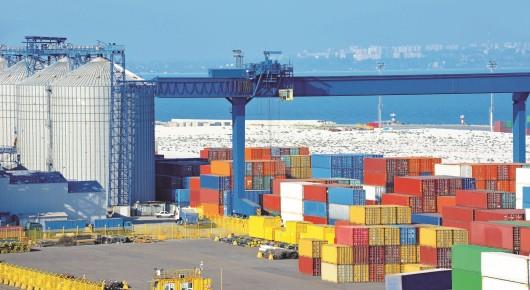Post-Soviet countries make their way towards improved agrifood trade

Agribusiness representatives and agricultural trade experts from post-Soviet countries gather here this week for three days dedicated to agrifood trade.
First up is the FAO-organized regional workshop on World Trade Organization (WTO) instruments, where they’ll learn about a variety of instruments to protect their interests in trade and to promote their agricultural products abroad.
The workshop will followed by the fourth annual meeting of the Agricultural Trade Policy Network in Europe and Central Asia.
About 60 people from various countries will attend the events. FAO has made it a priority in Europe and Central Asia to improve the understanding of the WTO agreements and to facilitate dialogue on the benefits and challenges posed by trade integration. Through a regional initiative, FAO supports the work of the region’s agricultural trade expert network, an independent and neutral platform for promoting the sharing of knowledge and experiences on agricultural trade issues.
The application of the WTO instruments, the subject of the first day of the programme, can facilitate trade and protect from discrimination. In particular, agribusiness can use some of these instruments for better market access or, in cooperation with governments, receive support, as laid down in WTO agreements.
“This year, FAO released a guide for agribusinesses on using WTO instruments, available in Russian and easily understandable for agribusiness and illustrated by many practical examples,” said Iryna Kobuta, FAO economist. “It provides a review of WTO instruments of multilateral agreements on agriculture, phytosanitary measures, technical trade barriers, trade facilitation and many more that can come at hand for agribusinesses when expanding to domestic and foreign markets.”
Transparency instruments provide access to information about import and export regulations. Trade remedies are used to safeguard producers from practices that distort trade, such as dumping or subsidies. Trade facilitation instruments improve procedures for expediting the movement, release and clearance of goods, and for reducing the delivery time and costs for importers.
A guide on export promotion, prepared by the International Trade Centre in Geneva, will be presented and discussed during a workshop on applying a practical approach when accessing new markets with agricultural products.
At the annual network meeting, policy indicators for selected countries in the region – Armenia, Azerbaijan, Belarus, Georgia, Kyrgyzstan, and Republic of Moldova – will be presented.
“The quantitative indicators will help everyone understand the effects of agricultural policies on economic activities and trade in the agriculture sector,” said Andrea Zimmermann, FAO economist.
FAO’s work here has been boosted by a number of different entities, Zimmermann said.
“This FAO pilot study benefits from the enormous commitment of our collaborators, the Agricultural Institute of Slovenia and national researchers in each of the pilot study countries,” she said.
Participants conclude the programme with a visit to an agricultural company in the Odessa region to study a working example of good practice in agribusiness.
11 September 2018, Odessa, Ukraine
